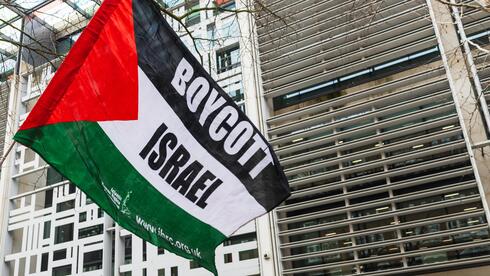More than one-fifth of participants in the Chicago Architecture Biennial (CAB), North America’s leading architecture event, have withdrawn in protest over sponsorship from a philanthropic foundation with investments in Israel.
About 23 architects, artists and design firms announced the move, objecting to support from Crown Family Philanthropies, a Jewish family foundation that reportedly holds about 10% of General Dynamics, one of the world’s largest defense contractors.
5 View gallery
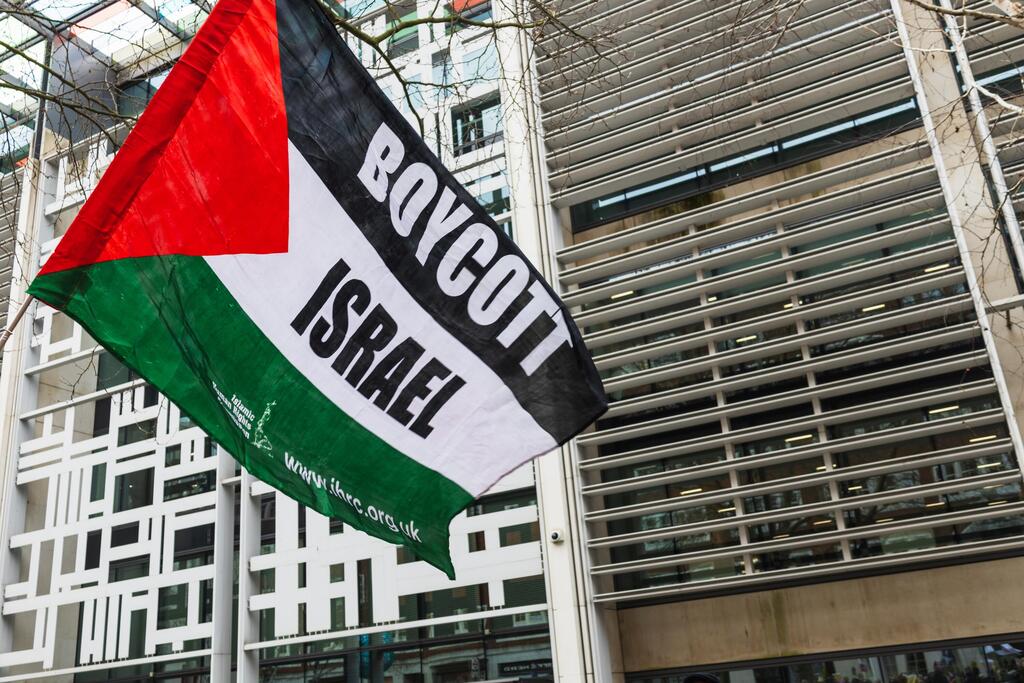

Cultural boycott at the Chicago Architecture Biennial
(Photo: Tartezy, Shutterstock)
General Dynamics manufactures, among other weapons, MK-84 heavy bombs, which have been supplied to Israel for its operations in Gaza. Under President Biden, the U.S. supplied Israel with more than 14,000 of these bombs before halting shipments due to alleged violations of international law; under President Trump, the embargo was lifted and 1,800 additional bombs were delivered.
In a letter to the biennial organizers titled “Statement from Chicago Biennial Participants Against Genocide,” the signees argued that “the sponsorship is incompatible with the values of our work as well as with the event’s stated mission of addressing ‘architecture’s role in shaping our collective future’ and pursuing ‘radical change.’”
5 View gallery
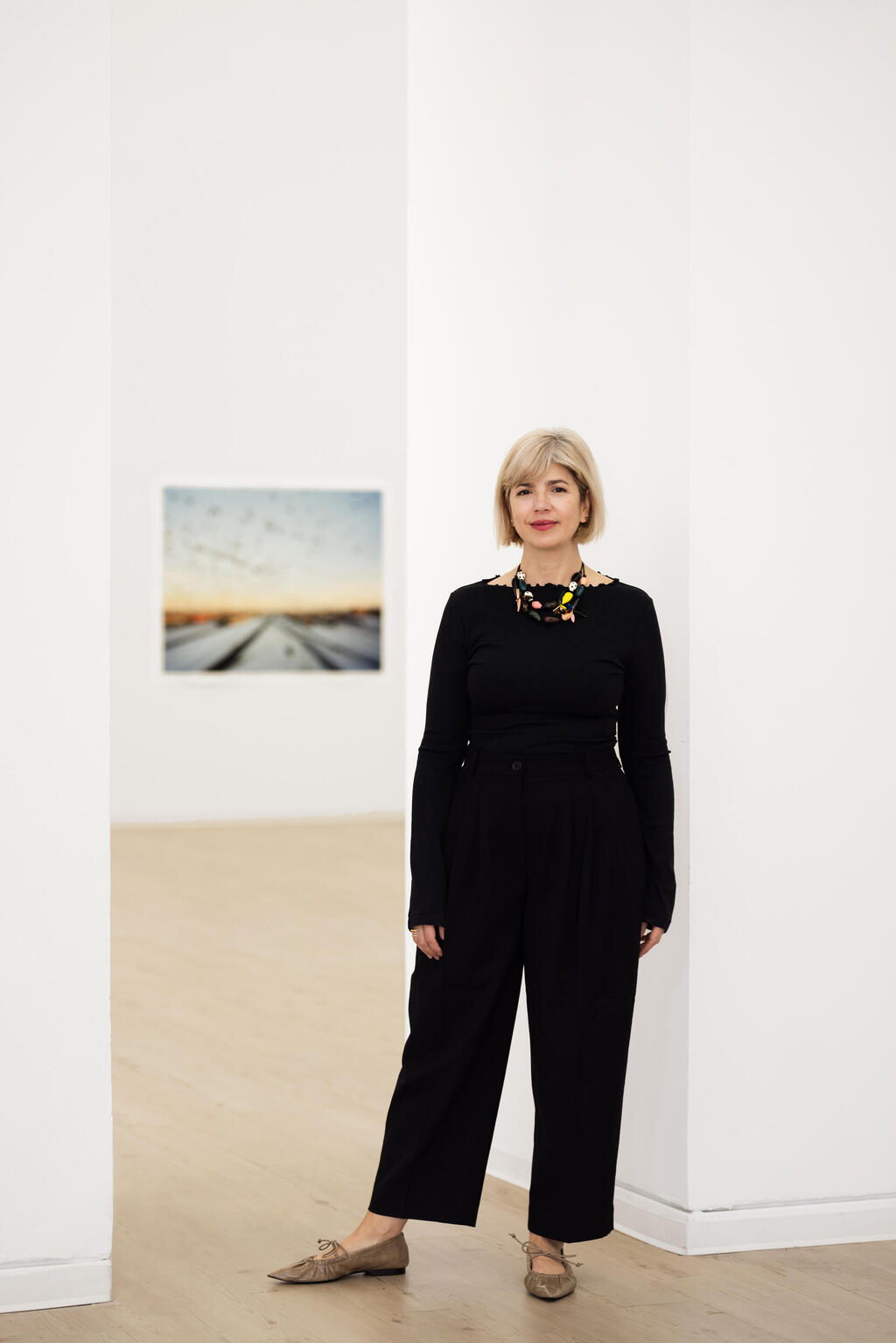

Florencia Rodriguez, artistic director of the Chicago Architecture Biennial
(Photo: Noah Sheldon)
They noted that even though the funds are intended for educational programs rather than exhibition production, the sponsorship is painful because it originates “from the gains made at the expense of the destruction of life and education facilities in Gaza.” The participants emphasized they do not want their names or work to serve as a “cultural facade” or tool for what they described as “human rights violations and war crimes.”
Among those who withdrew were Ethel Baraona Pohl and Anna Puigjaner, both from ETH Zurich, one of the world’s leading architecture schools, along with the Catalan firm MAIO and the Spanish cooperative for collective housing, known for innovative community housing and urban planning projects.
Other participants, including Burr Studio, Space Popular and WAI Think Tank, remained in the biennial but publicly opposed the sponsorship. These are internationally recognized offices active in major global design and architecture platforms.
The Chicago Biennial, held every two years since 2015, is considered a central stage for architecture in North America, showcasing hundreds of international architects, designers and artists. This year’s exhibition, themed “SHIFT: Architecture in Times of Radical Change,” features over 100 presentations across key city locations and the Museum of Science and Industry, with an additional 25 works scheduled for November. The event runs through February 28, 2026.
5 View gallery
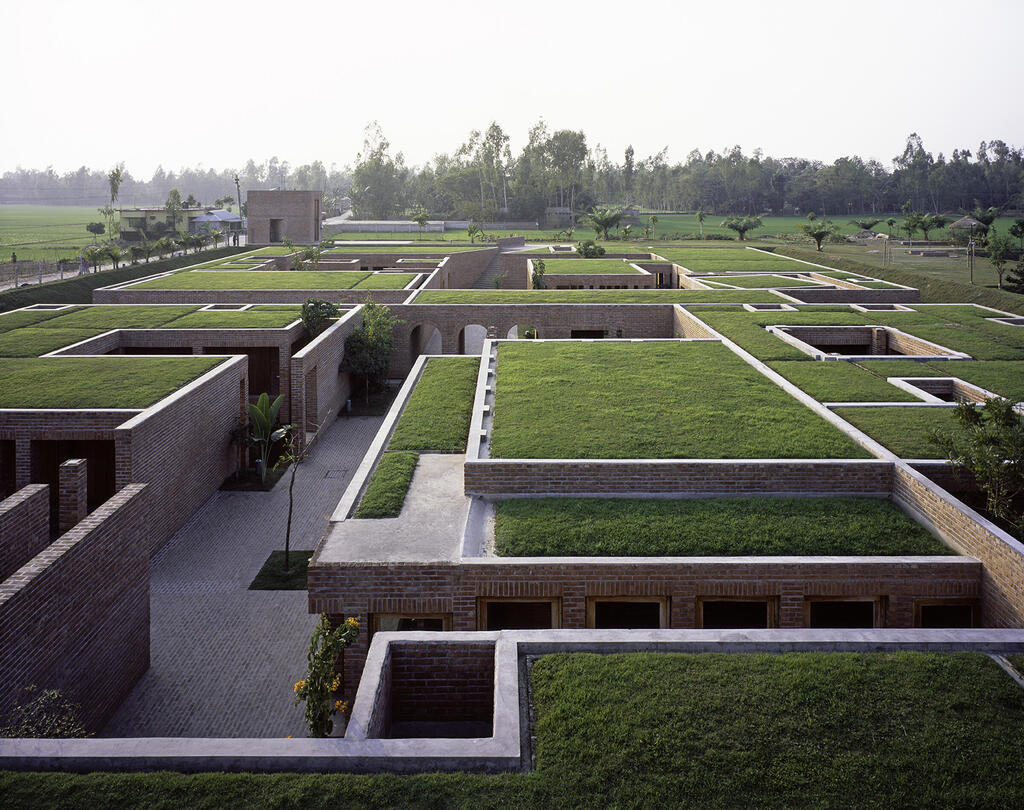

One of this year’s featured works: Kashef Chowd hury URBANA Friendship Centre
(Photo: Hélène Binet – Kashef Chowdhury)
Crown Family Philanthropies is a long-established Chicago philanthropic foundation that has funded prominent cultural and architectural projects, including the Crown Fountain in Millennium Park and the preservation of a building on the Illinois Institute of Technology campus designed by Ludwig Mies van der Rohe.
The Crown family, a prominent Jewish family in the U.S., has roots in the steel industry and today is active in philanthropy, particularly in the Jewish community and cultural and educational institutions in Chicago.
5 View gallery
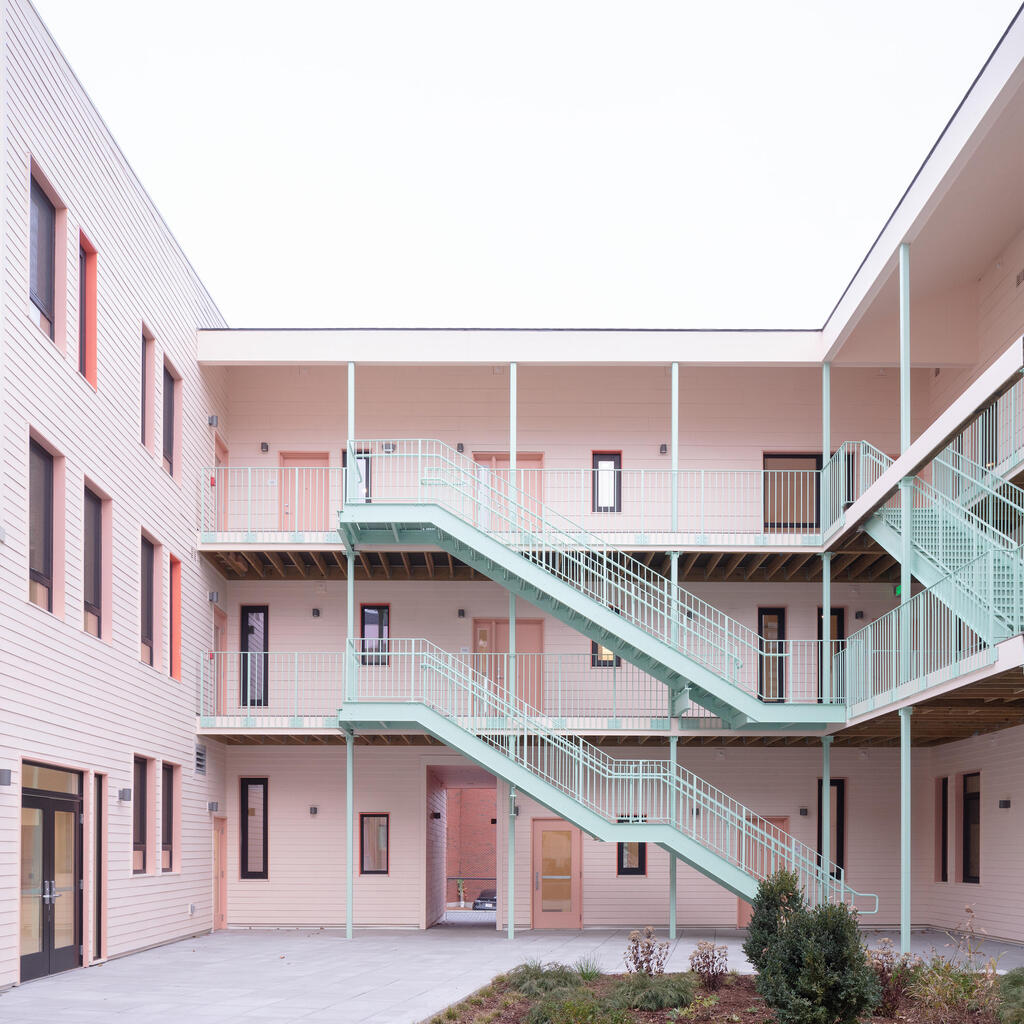

Another featured work: French2D Bay State Cohousing
(Photo: Naho Kubota – Anda French)
Biennial organizers rejected the criticism, noting in letters to signees that the Crown donation is strictly allocated for educational programs, not exhibition production. “We are not in a financial position to return funds already allocated,” the organizers said, adding that withdrawing the donation shortly before the opening would jeopardize the exhibition itself.
Participants offered to raise alternative funding to replace the Crown contribution, but the biennial reportedly declined, signaling to them that the issue is not purely financial. A biennial spokesperson said no further public statements are planned beyond the two letters already issued.
5 View gallery
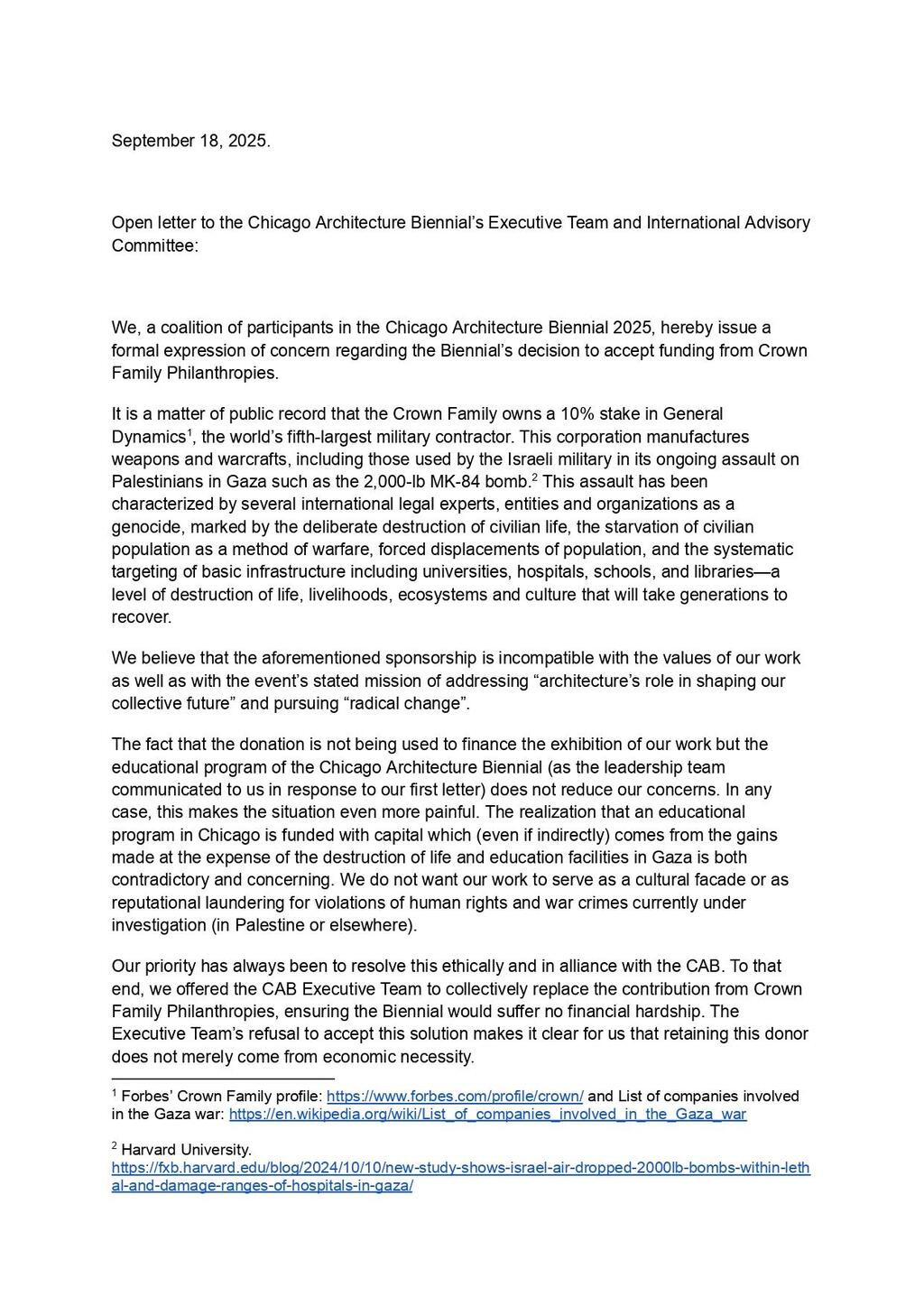

Letter published by biennial participants protesting Crown Foundation and its activities
Chicago Biennial participants have previously protested sponsorships from companies such as oil giant BP and architecture firms involved in planning the new U.S. embassy in East Jerusalem. The current dispute reflects broader trends of isolation of Israel internationally, as well as increasing protests and boycotts in the art and architecture worlds over funding tied to weapons, oil or governments perceived as oppressive.
The participants’ letter came days after a UN Human Rights Council committee published a report claiming Israel is committing genocide in Gaza, amid moves by some Western countries to recognize a Palestinian state. The signees concluded by urging organizers not to accept sponsorship in the future from entities they say are linked to human rights violations and to continue upholding the biennial’s stated commitment to “radical change.”

